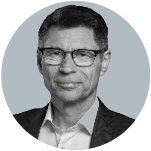50 years of Germany's Development Ministry
Open minds – better opportunities
By Dirk Niebel
In 1961, Walter Scheel became the first head of the young Federal Republic’s new Ministry for Economic Cooperation. That was 50 years ago, so now is a good time to look back, take stock and develop momentum for the future. Has Germany exhausted its potential for assisting international development? What must improve? What has stood the test of time?
“Minds for change – enhancing opportunities” – these few words sum up what the Federal Ministry for Economic Cooperation and Development (BMZ) does and stands for. Therefore this phrase is the fitting title of a 26-page strategy paper that recently outlined new guidelines for German development policy. The idea is to guide those who work in this field as well as to encourage everyone to help enshrine development issues in the heart of society. We want to convince everyone, including the sceptics, that development policy is a worthwhile investment in the future. The strategy paper is not meant to – nor can it – address every issue, answer every question or list every programme. But it does show that development policy has a great potential for helping to create a better world, pointing to five key areas in which we can pave the way for sustainable development.
We want to engage in open debate. Therefore we have set up a discussion forum on our website and established communication platforms in new social media such as twitter and facebook. Comments and opinions matter to us. At the end of the dialogue process, we will publish an extended strategy paper to elaborate how to focus on priority areas and what many dedicated individuals can do to help. Such dialogue is part of the strategy.
Freedom from fear and want
Our focus is on the individual. All human beings are born free and equal in dignity. Accordingly, we are committed to freeing people from fear and want and to base societies all over the world on equal opportunities and the rule of law. Healthy development enables people to seize opportunities and lift themselves out of poverty. Our development policy is geared to eliminating the structural causes of poverty by creating better global conditions in economic, environmental, political and social terms. Helping ensure that globalisation leads to healthy development for everyone is in line with our values – and it suits our interests.
Our agenda for enhancing development opportunities embraces and exceeds the Millennium Development Goals (MDGs). Our goals are good governance, human dignity, inclusive and environmentally sound growth as well as fair rules for international economic and political cooperation. Whether development policy succeeds or fails, the impacts are felt in Europe too. Unsuccessful development fosters violence, disease, conflict, climate change and displacement. Successful development promotes sustainable prosperity and freedom, the rule of law, public participation and security all over the world.
The challenges of the future can never be met by governments’ development policy alone. Developmental efforts must be investments in the future by the whole of society. In terms of partners, objectives and global regulation, we see the BMZ as a platform for the global sustainability dialogue. Development progress can only be achieved where people are able and willing to assume ownership. Development cannot be imported or exported. Though development policy cannot replace individual efforts and leadership, it certainly can support the willing.
Fair rules and the dismantling of discriminatory trade barriers are priority requirements for successful development. A number of related policy areas are of great relevance to development policymakers. Entrepreneurship on well operating markets at the local, regional and global levels is vital for generating tax revenues, creating employment and improving social protection. Entrepreneurs are also needed for inclusive growth and providing people with opportunities in life.
Growth in developing countries depends on productive local companies, investment and corporate social responsibility. Growth is needed to reduce poverty, but it must be sustainable in economy, social and environmental terms. In helping to promote such growth, we play a role in empowering people to live in social and economic freedom – regardless of gender and background, health and age. We are thus facili-tating inclusion and supporting ownership rather than prolonging dependence on aid. We regard the poor and our partner countries’ governments as partners with the responsibility to do what they can on their own.
We must not be discouraged by the fact that we have to respond to breaking crises with immediate emergency relief from time to time. But that kind of aid is not enough. The current famine crisis in eastern Africa confirms that, after a long time on the side lines, rural development is for good reason high on the development agenda again. Once more, the focus needs to be on sustainable action.
For any society, knowledge is the key to beating poverty, overcoming lack of freedom and paving the way for independent, participatory development. One priority of our coherent approach to education is to encourage participation in knowledge networks, establish research institutions and broker research cooperation. Educational poverty causes income poverty as well as prejudices human rights. Educational poverty robs people of opportunities in life and reinforces inequalities.
We want to promote the opposite trend. We want people to acquire educational assets, including vocational training, understanding of cross-cutting methods, personal independence and responsibility. Beyond this comprehensive notion of education, we are supporting investments in social safety nets and healthcare systems because these are prerequisites for achieving the health agenda of the Millennium
Development Goals.
Development requires empowerment for ownership, economic cooperation as well as access to regional markets and to financial services. It can only bear fruit in a democratic environment that respects human rights and is committed to good governance. We will continue to finetune our policy in the next two years, which means following the example of successful experience with other partners in the context of Afghanistan, for instance. It also means making conservative use of budget support and – where it is already in place – actively using it as an instrument for political dialogue, as has been done in cooperation with Malawi and Zambia.
The 50th birthday of the BMZ – and the opportunity it presents for stocktaking – happens to fall in the middle of the current legislative term. We will grasp the opportunity to review our government’s performance during its first two years and develop innovative ideas for the second half of its term. There is a lot to be done – let’s join forces!















